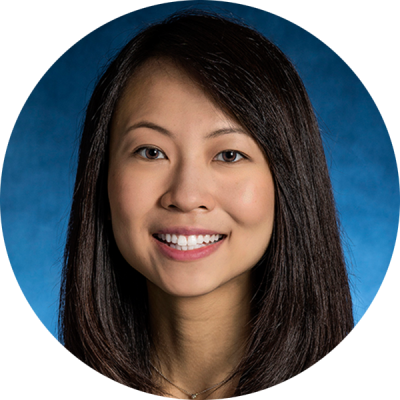
Yuxuan Wang
My work in Dr. Bert Vogelstein’s lab focused on the early detection of cancer, a leading cause of deaths worldwide with incidence projected to rise dramatically over the upcoming decades. Most cancer deaths result from tumors that have spread to distant sites. Thus, early detection would allow for the timely initiation of treatment while the tumor is still localized and offers tremendous potential for reducing mortality. We developed sensitive, sequencing-based assays to detect tumor-specific mutations as biomarkers for early disease. These assays have been successfully applied to diagnose various cancer types, such as ovarian and endometrial cancers, in easily collected bodily fluids, such as Pap smear fluid and plasma.
Questions & Answers
Why did you choose Johns Hopkins for your work?
I wanted to train at the forefront of both translational research and clinical medicine in preparation for my career as a physician scientist. Johns Hopkins was clearly my top choice after my interview visit. It struck me with its collaborative environment and unparalleled opportunities for making impactful discoveries.
What does receiving this award mean to you personally and professionally? Do you have any connection with the particular award you received?
It is an incredible honor to receive the David I. Macht Award. The award provides the encouragement and confidence I need to continue tackling challenging questions. I hope to someday make scientific discoveries that would change the practice of medicine — just as Dr. Macht did during his lifetime.
What contributed to your project’s success (special skills, interests, opportunities, guidance, etc.)?
I was very fortunate to have worked with an amazing team of collaborators around the world. Each of their important contributions ultimately made this project possible. I especially owe my thanks to my adviser, Dr. Bert Vogelstein, whose scientific rigor, patience and encouragement were the driving forces behind my success. I also have my family to thank for their unconditional love and support, which helped sustain me through every obstacle.
What thoughts do you have about Young Investigators’ Day itself, as a celebration of the roles students and fellows play in research at Johns Hopkins?
To me, Young Investigators’ Day exemplifies not only our institution’s dedication to scientific and translational research, but also its tremendous support of young trainees, like myself, who are early in their careers.
What has been your best/most memorable experience while at Johns Hopkins?
My most memorable experiences were the annual M.D./Ph.D. retreats. I got to spend the weekend with friends who I have bonded with over the past few years in the program and hear about some of the most exciting research at Johns Hopkins.
What are your plans over the next year or so? Graduating, looking for faculty positions, etc.?
I will be doing a residency at The Johns Hopkins Hospital in internal medicine, followed by a fellowship in oncology.
Tell me something interesting about yourself that makes you unique. Do you have any special hobbies, interests or life experiences?
I have been teaching group fitness classes at the Johns Hopkins Ralph S. O’Connor Recreation Center since 2009. Teaching these classes every week provides a complete mental break from work and school — it is my best stress relief.